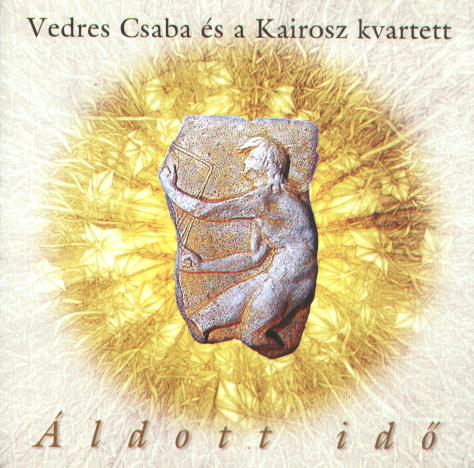|
 What is the aim of Kairosz? It is to perform accessible contemporary classical music. We are confident that the elevation of rock music as a common musical language in the realm of 'high culture' would generate a boost to the present crisis of classical contemporary music.
What is the aim of Kairosz? It is to perform accessible contemporary classical music. We are confident that the elevation of rock music as a common musical language in the realm of 'high culture' would generate a boost to the present crisis of classical contemporary music.
The controversial situation of Kairosz stems from this point. Those who wish to be entertained by our music, will be disappointed, since the music of Kairosz is unsuitable as entertaining or background music. On the other hand, those who expect "standard classical music" will be disappointed as well, since the works of Mozart, Schubert or Bartók are not part of our repertoire.
The long-term goal of Kairosz is to occupy a mid-point position in the musical life, similarly to the Brodsky or Kronos Quartets.
“The Kairos-image on the cover originally decorated the Stadium of Olympia. Nowadays only copies are available. The story speaks about a fleet-footed young man disappearing as wind. He has a sharp dagger in the right hand which helps him to overcome all troubles. On his front head, he has got one single long tuft of hair. He is Kairos, the god of right moment. Kairos is the symbol of “proper time” created by God. Kairos is the incarnation of “accomplished time”, the “proper time” He arrives quickly and disappears in the same way. If you are not prepared for his arrival, you can not grasp it.
The point here is time, our life, the recognized or missed occasions; the life-influencing minutes between “carpe diem” and “the hour of our death”; it is not about Chronos, the god of dividable, though immeasurable long and immeasurable short course of time which is terribly passing. It is not about him, but his pair, the enlightening time that ripens and hides good occasions. Time of Chronos is flowing-passing. Expected or unexpected, time of Kairos reaches you suddenly. If you recognize and grasp its sense, i.e. the proper occasion, you have become richer, perhaps happier. You may, however, be slow, you may miss the proper occasion, and Kairos does not stop. He does not favour anybody, only flashes again and again the possibilities during your life.
The twins or contrasting duality of Chronos-Kairos have been present, since the dawn of thinking, in man who meditates on the creation and contemplates the course of life. Everyday language expresses lively this point of the duality in time. The ploughman says: time is passing. It is passing because Chronos is rigorously grinding it. It is passing and is getting filled by which the occasions offered by God are presented to our free will “at proper time”. If our choice is correct, our days, hours “pass” enriched by sense and sensibility. (after dr György Kolumbán)
The compositions on this CD try to grasp the typical moments of man living in the duality of Chronos-Kairos; the maddening race; the everydays of heavily polluted cities. The almost constant internal tension, loneliness and alienation. And as opposed to them, the suddenly attacking unforeseeable time of grace. Sudden silence. A minute when we realize: it could have happened or could happen otherwise…. Brightness when a completely common moment reflects the message of an other world. The minute when a completely forgotten landscape, face, melody and flavour help us revive – for a while – our childhood. A surprisingly born friendship, an immediately beloved place or a strange moment which became unforgettable for some reason. The Kairos itself. “
Vedres arranged Peter Hammill's (Van Der Graaf Generator) Siren Song and the Sysytem Of A Down's Toxicity.
Júlia Gyermán - violin
Zsófia Molnár - violin
Tamás Cs. Nagy - viola
Gergő Sipos Gábor - cello
Csaba Vedres - piano
| 1. | Gierriero (2:16) | | 2. | Ragyogás (7:29) | | 3. | Toxicity (3:34) | | 4. | Áldott idő | | 5. | Szórakozott szamba (3:55) | | 6. | Szirén dal (5:59) | | 7. | Zongoraötös I. Allegro marcato (6:37) | | 8. | II. Adagio quasi una fantasia (4:17) | | 9. | III. Giocoso (3:56) | | 10. | IV. Presto (4:57) |
| bonus tracks |
| 1. | Blues-fantázia (7:22) | | 2. | Stonehenge (4:43) |
|
